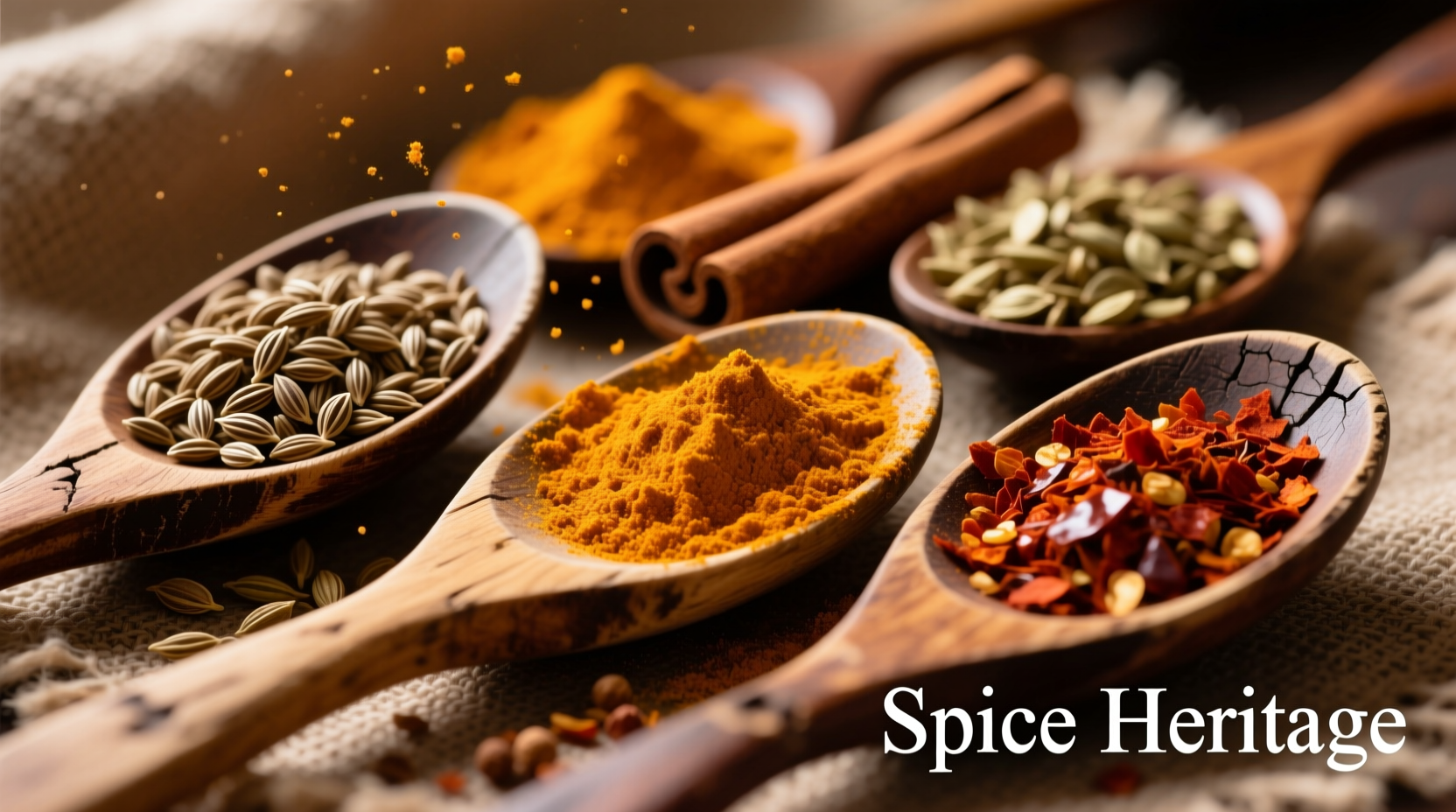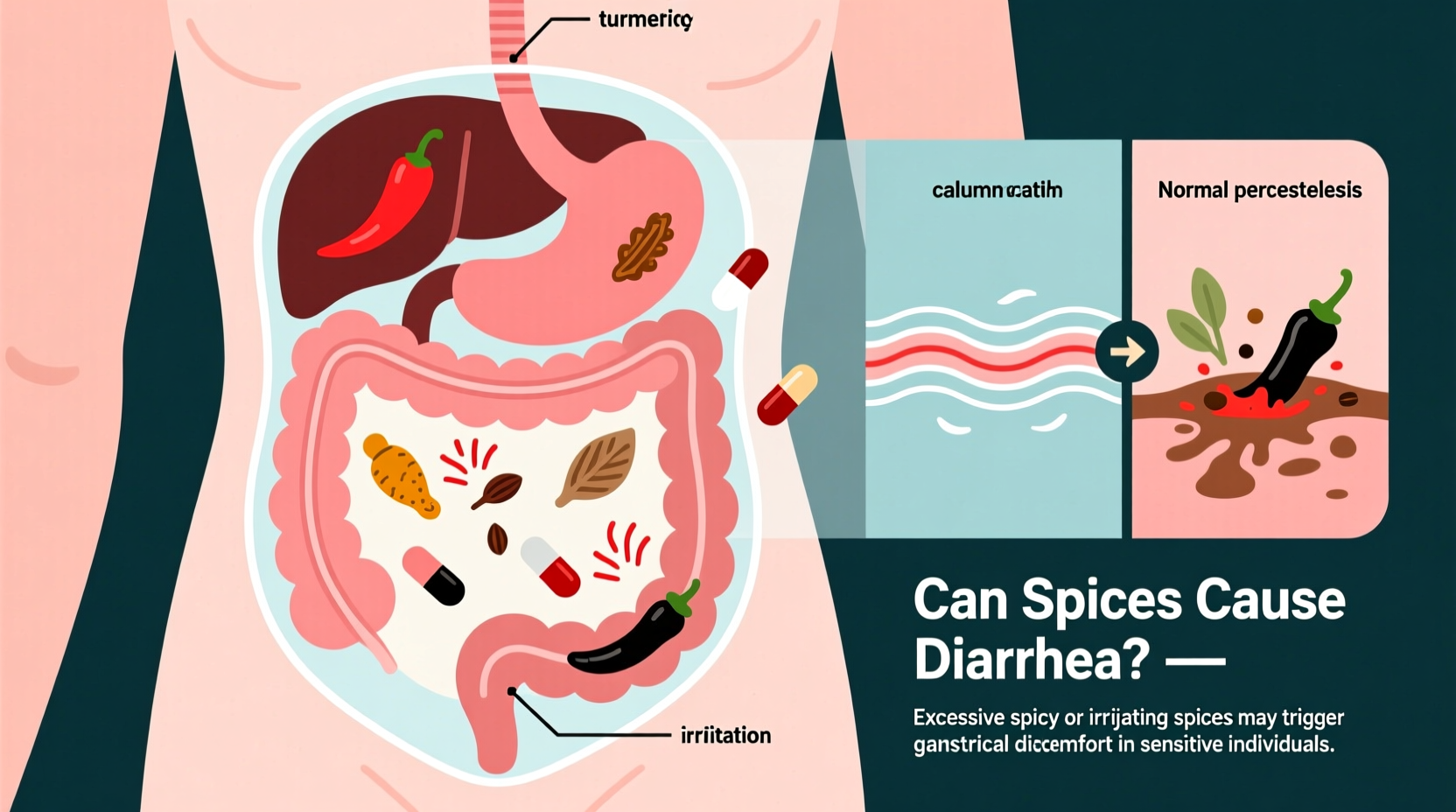Many people enjoy spicy foods without issue, but others experience uncomfortable digestive reactions after consuming certain spices. Understanding why this happens and how to manage it can help you enjoy flavorful foods while maintaining digestive comfort.
How Spices Affect Your Digestive System
Spices interact with your digestive tract in several physiological ways. The active compounds in many spices stimulate receptors throughout your gastrointestinal system. Capsaicin, the compound that gives chili peppers their heat, activates TRPV1 receptors that signal pain and heat sensations. This stimulation can accelerate gut motility, potentially leading to diarrhea in sensitive individuals.
According to research published in the Journal of Neurogastroenterology and Motility, capsaicin increases gastrointestinal transit time by up to 30% in some people. This accelerated movement doesn't allow sufficient time for proper water absorption in the colon, resulting in looser stools.
| Common Culprit Spices | Active Compound | Typical Reaction Threshold | Common Symptoms |
|---|---|---|---|
| Chili peppers (all varieties) | Capsaicin | 0.5-1 fresh pepper for sensitive individuals | Burning sensation, urgency, diarrhea |
| Black pepper | Piperine | 1+ teaspoons for sensitive individuals | Abdominal cramping, increased bowel movements |
| Curry powder blends | Mixture of compounds | 2+ tablespoons for sensitive individuals | Gas, bloating, diarrhea |
| Ginger | Gingerols | 2+ teaspoons fresh for sensitive individuals | Mild laxative effect, loose stools |
Why Some People React While Others Don't
Individual responses to spices vary dramatically due to several factors:
- Genetic differences in TRPV1 receptor sensitivity affect how strongly you perceive spice heat
- Gut microbiome composition influences how your body processes spicy compounds
- Pre-existing conditions like IBS, Crohn's disease, or ulcerative colitis increase sensitivity
- Regular exposure can build tolerance over time through receptor desensitization
The American Gastroenterological Association notes that approximately 15-20% of the population experiences digestive discomfort from spicy foods. This percentage increases significantly among people with diagnosed digestive disorders.

When Spice Consumption Becomes Problematic
Occasional mild digestive upset after eating spicy foods is common and usually nothing to worry about. However, certain patterns indicate you should pay closer attention:
Typical Timeline of Spice-Induced Digestive Issues
- 5-15 minutes: Burning sensation in mouth and throat
- 30-60 minutes: Stomach discomfort or cramping begins
- 1-2 hours: Increased urgency and potential diarrhea
- 2-4 hours: Symptoms typically peak
- 4-12 hours: Gradual resolution as spice compounds move through digestive tract
If your symptoms follow this pattern and resolve within 24 hours, it's likely a normal reaction to spice compounds. However, if you experience symptoms lasting longer than 24 hours, severe pain, blood in stool, or fever, consult a healthcare provider as these indicate something more serious than simple spice sensitivity.
Managing Spice Sensitivity: Practical Solutions
If you enjoy flavorful foods but struggle with spice-related digestive issues, try these evidence-based approaches:
Gradual Tolerance Building
Research from the National Center for Complementary and Integrative Health shows that regular, small exposures to capsaicin can increase tolerance over time. Start with minimal amounts of mild peppers and gradually increase as your system adapts.
Dairy Pairings
Capsaicin is fat-soluble but not water-soluble. Consuming dairy products like yogurt or milk alongside spicy foods helps dissolve capsaicin molecules, reducing their impact on your digestive tract. A study in the Journal of Food Science found whole milk reduced capsaicin sensation by 65% compared to water's 10% reduction.
Strategic Spice Selection
Not all spices affect digestion equally. Consider these alternatives:
- Replace chili peppers with smoked paprika for similar depth without intense heat
- Use citrus zest instead of black pepper for brightness
- Try roasted garlic instead of raw for milder flavor impact
- Substitute cumin with toasted coriander for similar earthiness
When to Consult a Healthcare Professional
While occasional digestive upset from spices is normal, persistent issues warrant medical evaluation. See a doctor if you experience:
- Diarrhea lasting more than 48 hours after spice consumption
- Severe abdominal pain accompanying digestive issues
- Unexplained weight loss alongside digestive symptoms
- Blood in your stool
- Symptoms occurring with increasingly smaller amounts of spice
These could indicate underlying conditions like inflammatory bowel disease, food intolerances, or other digestive disorders that require proper diagnosis and treatment.
Enjoying Flavor Without the Discomfort
Spice sensitivity doesn't mean giving up flavorful foods entirely. By understanding your personal tolerance threshold, selecting appropriate spices, and using strategic preparation methods, you can continue enjoying diverse cuisines while maintaining digestive comfort. The key is mindful consumption and paying attention to how your body responds to different spice types and quantities.











 浙公网安备
33010002000092号
浙公网安备
33010002000092号 浙B2-20120091-4
浙B2-20120091-4